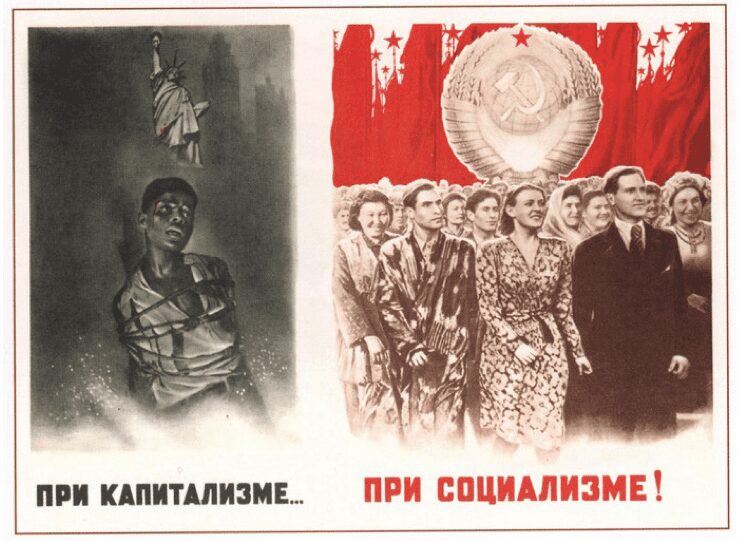Iwalewahaus, Bayreuth, Germany
25 May 2016 - 21 Aug 2016

Soviet poster from 1933, Wayland Rudd Archive. Courtesy of Yevgeniy Fiks
The exhibition “Things Fall Apart” will feature artists, filmmakers and groups from across Africa, Asia, Europe and North America. Drawing on film, photography, propaganda, and public art, the exhibition presents interdisciplinary reflections on African connections to the Soviet Union and related countries.
The title of the exhibition is borrowed from Chinua Achebe’s 1958 classic of post-colonial fiction, seen by many as the archetypal modern African novel in English which reflects on the devastating impact of colonialism in Africa. Our exhibition uses this association to focus on a similar loss of utopian perspective following the end of the cold war and collapse of the Soviet Union and eastern bloc.
The exhibition will present historical and contemporary responses to the geopolitical and cultural connections of African nations to the Soviet Union and related countries. Links were forged particularly during the second half of the twentieth century, as post-colonial power struggles drew support from the East and the West. The Soviet Union, Yugoslavia, Cuba and East Germany all offered aid to national governments such as those of Mozambique and Angola, as well as providing educational scholarships as a means of wielding soft power. The historic ties between these nations find expression across the twentieth and twenty- first centuries: from early-Soviet utopian visions of interracial collaboration; through the height of the Cold War when soft power was used to influence independence struggles; to the ongoing stories of African independence and liberation. The season will seek to uncover and explore some of these links.
The exhibition reaches back to the beginning of the Soviet era through the work of Russian-American artist Yevgeniy Fiks. Fiks explo- res representations of black people in Soviet press and propaganda as early as 1920, which he presents through The Wayland Rudd Archive. The exhibition also reexamines relationships built during the height of the Cold War, including Tito’s 1961 visit to Africa.
Contemporary traces of communist street art and propaganda are captured by Jo Ractliffe and Kiluanji Kia Henda, revealing the lasting legacy of liberation struggles on the continent. In addition, the work of Onejoon Che critically examines the legacy of North Korea’s Mansudae Art Studio which produced socialist realist artworks such as The African Renaissance.
Accompanying the exhibition, a series of events and screenings will take place at Iwalewahaus. The programme “Red Africa” provides further insight into the relation with academic presentations, artist talks and film screenings.
Find the full program here – “Red Africa”_programm flyer
Curator: Mark Nash (London)
Project Management Bayreuth: Nadine Siegert
Participating Artists
Filipa César, Onejoon Che, Radovan Cuki und Ivan Manojlovi (Museum of Yugoslav History), Angela Ferreira, Yevgeniy Fiks, Kiluanji Kia Henda, Isaac Julien, Paulo Kapela, Stevan Labudovi und Milica Tomi, kara lynch, Tonel, Alexander Markov, The Travelling Communiqué Group, Jo Ractliffe
.
Exhibition Opening on the 25th of May 2016, 7pm
.
www.iwalewahaus.uni-bayreuth.de